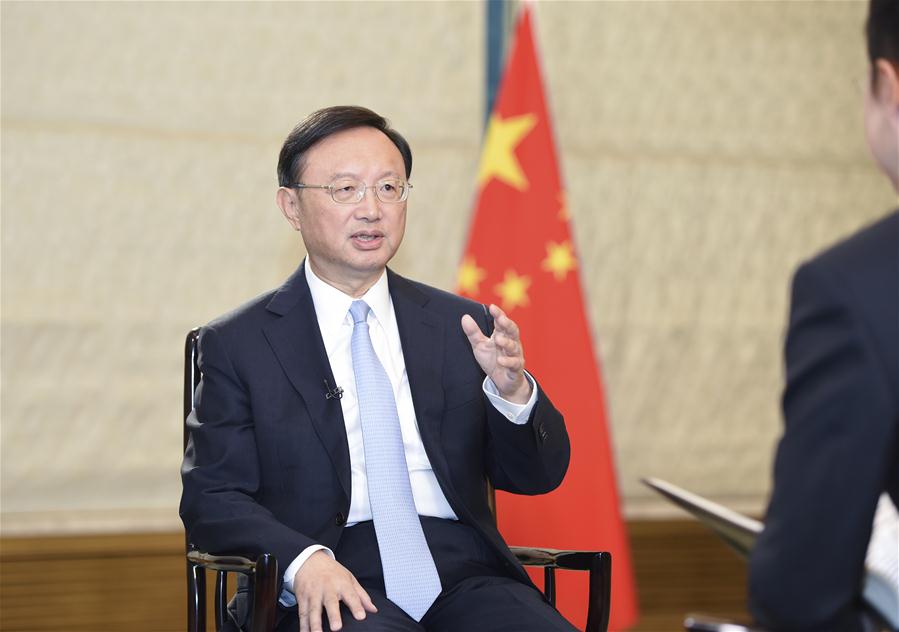Full coverage: The South China Sea Issue
BEIJING, July 15 (Xinhua) -- Chinese State Councilor Yang Jiechi said here on Thursday that the South China Sea arbitration will not "in the slightest way" shake China's resolve to pursue the path of peaceful development.

Chinese State Councilor Yang Jiechi takes an interview from Chinese state media on the so-called award of the Arbitral Tribunal for the South China Sea arbitration in Beijing, capital of China, July 14, 2016.
Yang made the remarks in an interview with state media on the so-called award of the Arbitral Tribunal for the South China Sea arbitration.
"To seek peaceful development is not a matter of expediency. It is a strategic choice China has made in line with the trend of the time and its own fundamental interests," said Yang.
Yang said China remains committed to developing friendly relations with other countries on the basis of the Five Principles of Peaceful Co-existence, and deepening win-win cooperation and connectivity with its neighbors.
China adheres to negotiation and consultation as a means for addressing relevant territorial and maritime delimitation issues, and resolutely safeguards peace and stability in the region, he said.
The Hague-based tribunal handling the South China Sea arbitration case unilaterally initiated by the former Philippine government issued its final award on Tuesday, denying China's long-standing historical rights in the South China Sea.
In response, China issued two statements on July 12 and on July 13, a White Paper entitled China Adheres to the Position of Settling Through Negotiation the Relevant Disputes Between China and the Philippines in the South China Sea, stating China's solemn position of non-acceptance and non-recognition of the award and reaffirming China's territorial sovereignty and maritime rights and interests in the South China Sea.
Stressing that China's position on the arbitration fully complies with international law, Yang said the basic fact has been thoroughly elaborated in a series of position papers issued by the Chinese government.
"The attempt to mount an all-out smear campaign against China by distorting this basic fact has once again exposed the nature of this arbitration, that is, a farce in which certain countries use international law as a cover to pursue their own hidden agenda," said Yang.
In response to the role of some non-regional countries, Yang said the South China Sea arbitration "is a case in point of how non-regional countries interfere in the South China Sea issue."
He said in recent years, certain countries outside the region, driven by their own agenda, have frequently intervened in the South China Sea issue under the pretext of upholding "freedom of navigation" and "maintaining regional peace," leading to an escalation of tension.
"Such highly irresponsible moves have become the major source of risks that affect peace and stability in the South China Sea," Yang said.
The South China Sea issue is an issue between littoral countries and should be left to the countries concerned to resolve through peaceful negotiations, Yang said.
He said China has never rejected the legitimate rights and interests of non-regional countries in the South China Sea, calling on relevant countries to respect the independent choice of China and its neighboring countries in the South China Sea and do more to facilitate sustained peace and stability in the region.
On the China-Philippines ties, Yang said the arbitration is a major political obstacle to the improvement of relations between China and the Philippines, calling on the new Philippine government to bear in mind the common interests of the two countries and the broader picture of bilateral ties and properly handle relevant issues.
The South China Sea issue is not an issue between China and ASEAN, said Yang, adding that China will maintain communication and consultation with those ASEAN member states who are directly concerned to address the specific disputes in a proper way.















